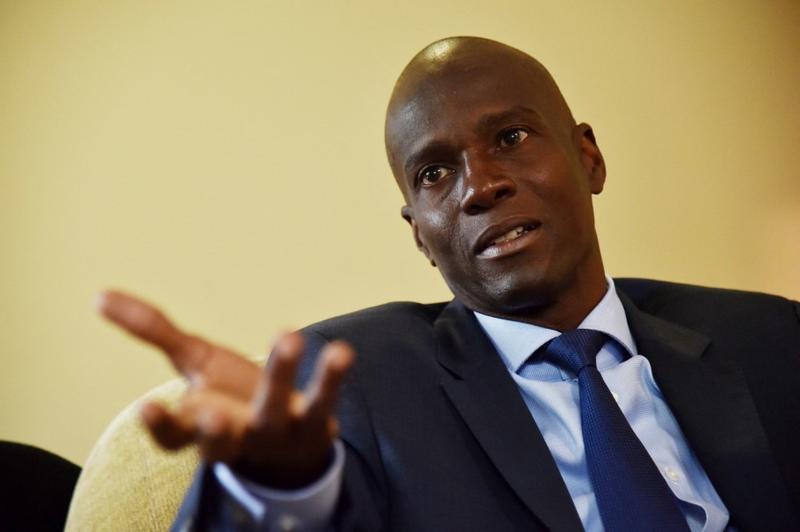 In this file photo dated Sept 6, 2016, then presidential candidate Jovenel Moise speaks during an interview with AFP in the commune of Petion Ville in the Haitian capital, Port-au-Prince. (HECTOR RETAMAL / AFP)
In this file photo dated Sept 6, 2016, then presidential candidate Jovenel Moise speaks during an interview with AFP in the commune of Petion Ville in the Haitian capital, Port-au-Prince. (HECTOR RETAMAL / AFP)
PORT-AU-PRINCE - Haitian President Jovenel Moise was shot dead by unidentified attackers in his private residence overnight in a "barbaric act", the government said on Wednesday, stirring fears of escalating turmoil in the impoverished Caribbean nation.
The assassination coincided with a wave of gang violence in Port-au-Prince as armed groups have battled with police and one another for control of the streets in recent months, turning many districts of the capital into no-go zones.
The assassination coincided with a wave of gang violence in Port-au-Prince as armed groups have battled with police and one another for control of the streets in recent months, turning many districts of the capital into no-go zones
The 53-year-old president's wife, Martine Moise, was also shot in the attack that took place around 1 am local time (0500 GMT) and was receiving medical treatment, Interim Prime Minister Claude Joseph said in a statement.
"A group of unidentified individuals, some of them speaking Spanish, attacked the private residence of the president of the republic and thus fatally wounded the head of state,” he said.
Joseph said the police and army had the security situation under control though gunfire could be heard throughout the crime-ridden capital of 1 million people after the attack.
ALSO READ: 7 Catholic clergy, including 2 French citizens, kidnapped in Haiti
With Haiti politically polarized and facing a growing humanitarian crisis and shortages of food, fears of widespread chaos are spreading. The Dominican Republic said it was closing the border it shares with Haiti on the island of Hispaniola.
The bloodshed in Haiti is driven by worsening poverty and political unrest.
Turbulent History
The country of about 11 million people - the poorest nation in the western hemisphere - has struggled to achieve stability since the fall of the Duvalier dictatorship in 1986, and grappled with a series of coups and foreign interventions.
A UN peacekeeping mission - meant to restore order after a rebellion toppled then-President Jean-Bertrand Aristide in 2004 - ended in 2019 with the country still in turmoil. In recent years, Haiti has been buffeted by a series of natural disasters and still bears the scars of a major earthquake in 2010.
Moise, a banana exporter-turned-politician, faced fierce protests after taking office as president in 2017. This year, the opposition accused him of seeking to install a dictatorship by overstaying his mandate and becoming more authoritarian. He denied those accusations.
"All measures are being taken to guarantee the continuity of the state and to protect the nation," Joseph said.
ALSO READ: Haiti opposition names interim leader amid presidency fight
Moise had ruled by decree for more than a year after the country failed to hold legislative elections and wanted to push through a controversial constitutional reform.
The US Embassy said in a statement it would be closed on Wednesday due to the "ongoing security situation".
The United States is assessing the "tragic attack" and President Joe Biden will be briefed on the assassination, the White House press secretary Jen Psaki said in Washington.
"We stand ready and stand by them to provide any assistance that's needed," she said. "Of course our embassy and State Department will be in close touch but it's a tragedy. We stand with them and it's important that people of Haiti know that."
READ MORE: Haiti denounces plot to oust president, arrests over 20
The United States had on June 30 condemned what it described as a systematic violation of human rights, fundamental freedoms and attacks on the press in Haiti, urging the government to counter a proliferation of gangs and violence.
Dominican Republic President Luis Abinader held an emergency meeting early on Wednesday about the situation in Haiti but had yet to issue a statement.


